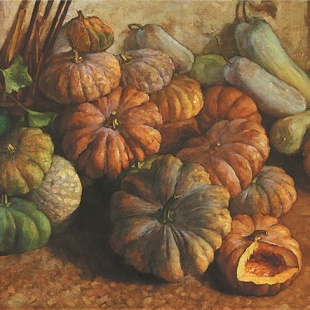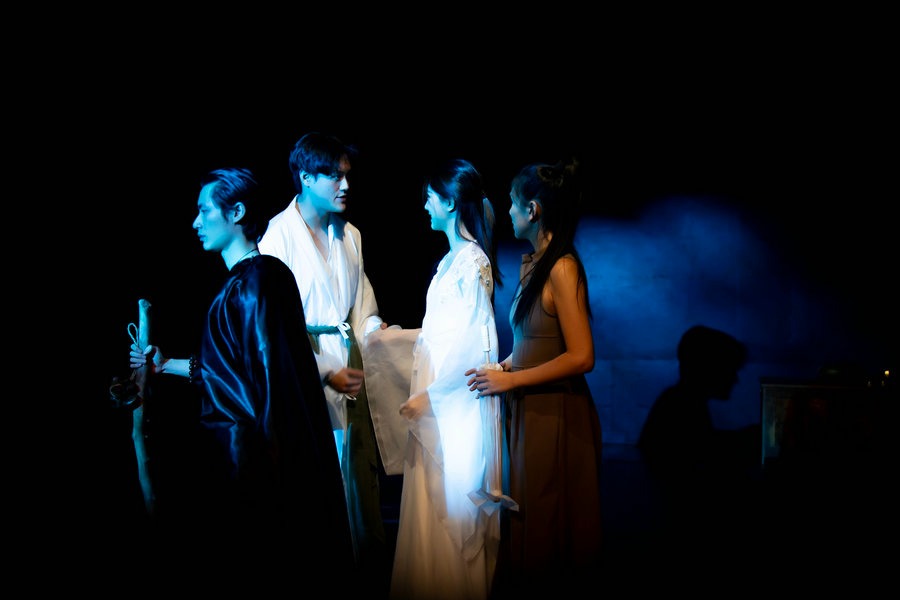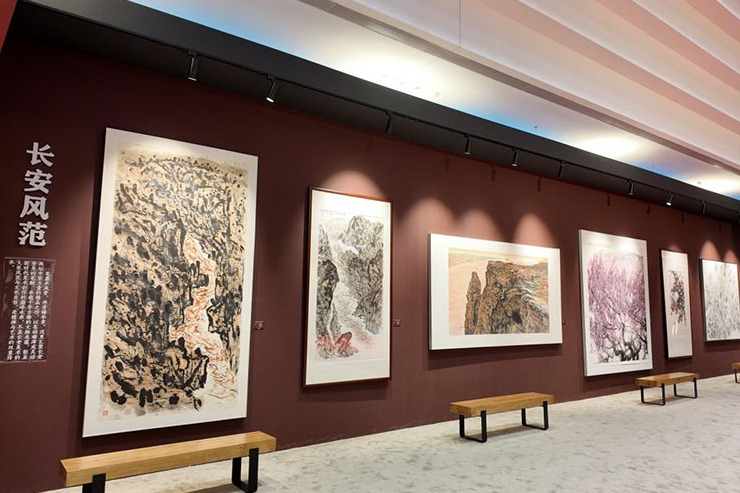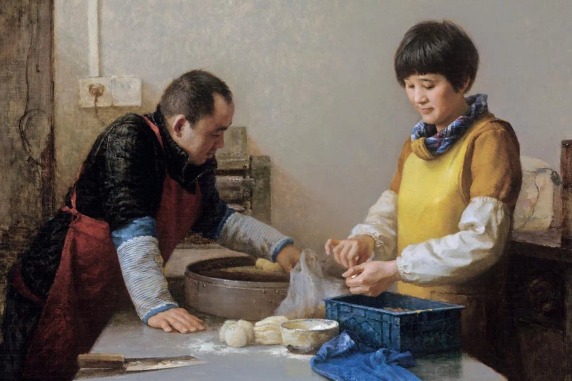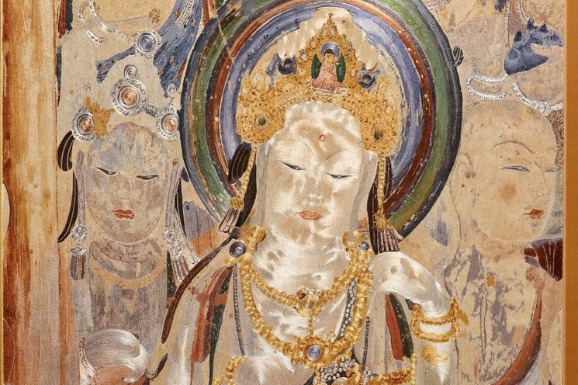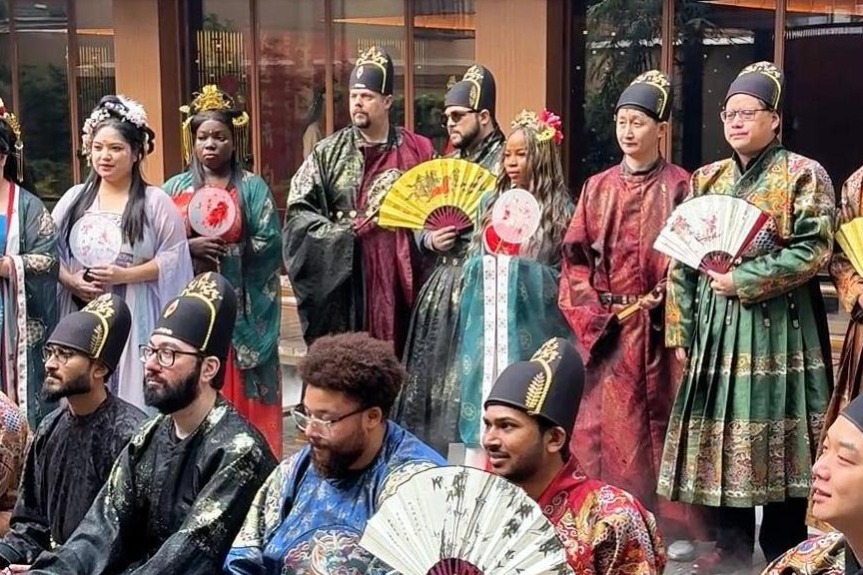A place of sanctuary and creativity


Chongqing, tucked in the Sichuan Basin where the majestic Yangtze River runs, was not only the temporary wartime capital of the Kuomintang government. It was also a hub of celebrated artists, schools and cultural institutions whose presence there helped stoke the embers of modern Chinese art amid the fire and smoke of World War II, and their accomplishments helped, in part, to shape the country's art scene in the decades following the war.
Besides Fu, featured artists at the exhibition also include Xu Beihong, another luminary of 20th-century Chinese art who, while in Chongqing, depicted the plight of ordinary people during wartime and living in poverty, held exhibitions and opened up lectures to motivate people not to give up the struggle against the Japanese invaders and continue the fight for national independence.
In the latter years of his life, Xu often recalled his time in Chongqing, according to his wife Liao Jingwen (1923-2015) who once said, "in paintings he created, he inscribed places of Chongqing, such as Hualongqiao and Panxi. He developed a strong attachment to the city while he was there".
Xu Ji, a grandson of Xu Beihong and a chief curator of the exhibition, says the title is derived from Guan Canghai (Behold the Dark Green Sea), a poem attributed to Cao Cao, a statesman, military commander and poet living in the second and third centuries, referring to Chongqing's scenic magnificence and the courage of its people in the face of national crises.
"The city became a shelter and a center for those who evacuated from other parts of the country that were occupied by the Japanese. They made art, rebuilt schools, held exhibitions, formed groups and founded publications," says Xu Ji. "Through all sorts of activities, they voiced the pain and courage of the people and their nation.
"Therefore, this show is a tribute to the greatness of art, and to the social responsibilities artists undertook in a challenging period of time."
In his painting, Xu Beihong often detailed the difficulties people faced at the time, for example, descending and climbing slippery steps to fetch water from the river, several times a day.
Fu himself had firsthand experience of these daily hardships. His rented accommodation in Chongqing lacked sufficient space, and was poorly lit.


